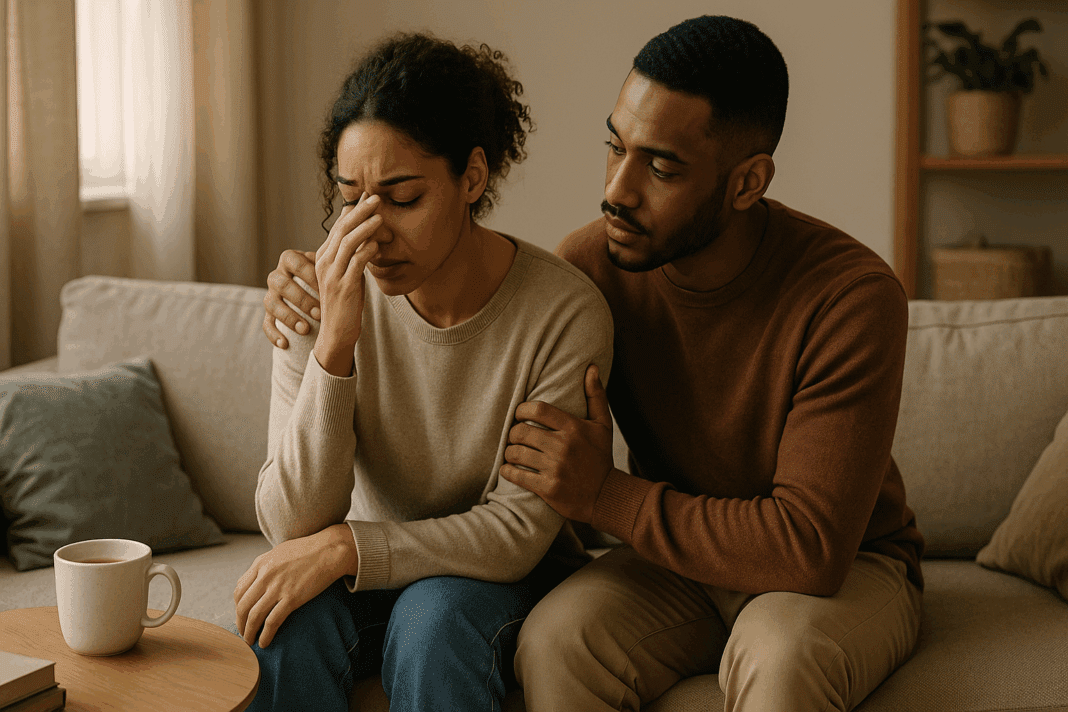When someone you deeply care about is struggling with an eating disorder, it can feel both heart-wrenching and confusing. The desire to help is instinctive, yet the path to offering meaningful support can be clouded by uncertainty. If you find yourself wondering, “what can I do to help my girlfriend with an eating disorder?” you’re not alone. Many partners walk this difficult path, striving to balance compassion with understanding while also navigating the complexities of mental health, nutrition, and healing. This article offers practical, research-backed insights that align with a holistic view of mental and physical wellness, making it especially relevant for readers interested in mindful eating, healthier lifestyles, and evidence-based mental health support.
You may also like: How to Stop Emotional Eating and Regain Control: Mindful Nutrition Strategies That Support a Healthier Lifestyle
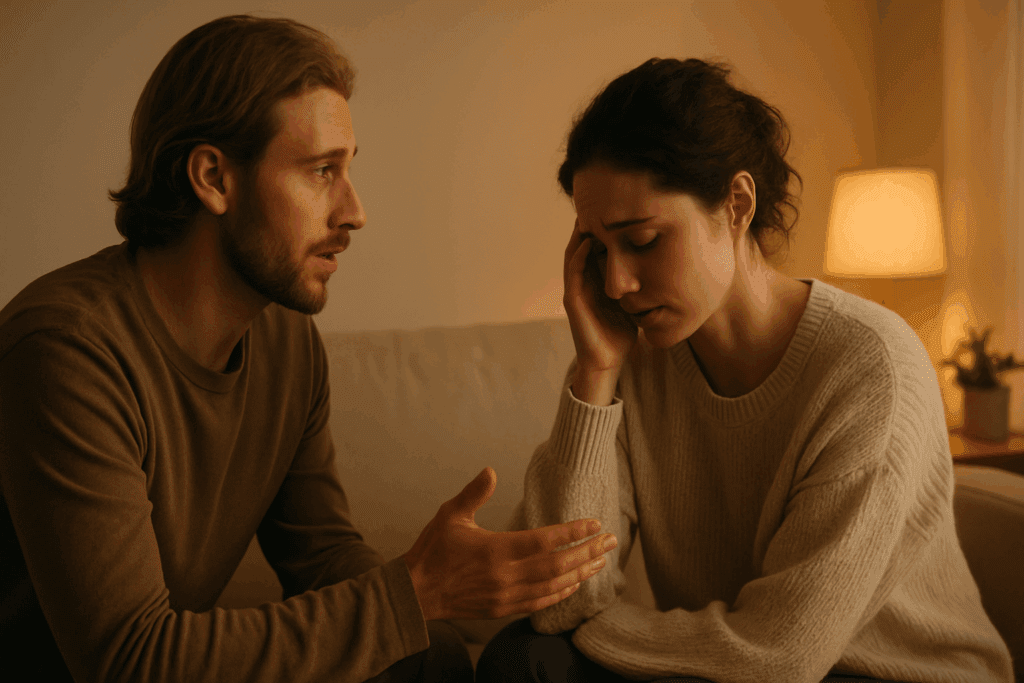
Understanding the Nature of Eating Disorders
Before diving into strategies for support, it’s crucial to understand what eating disorders really are. These are not merely about food or weight but are deeply rooted mental health conditions that involve complex emotional, psychological, and often physiological dimensions. Common types include anorexia nervosa, bulimia nervosa, and binge-eating disorder, each with distinct behavioral patterns and underlying triggers. Anorexia, in particular, can be especially difficult to understand from an outsider’s perspective, as it often involves extreme food restriction, distorted body image, and intense fear of gaining weight despite being underweight.
The term “love anorexic list” has gained popularity in online forums and communities, often referring to the checklist of emotional challenges partners experience when they love someone struggling with anorexia. These challenges range from feelings of helplessness and fear to guilt and emotional fatigue. Understanding the emotional toll this journey may take is part of practicing empathy and fostering resilience in the relationship. Eating disorders also rarely occur in isolation. They are frequently accompanied by other conditions like anxiety, depression, or obsessive-compulsive tendencies, which can further complicate recovery efforts.
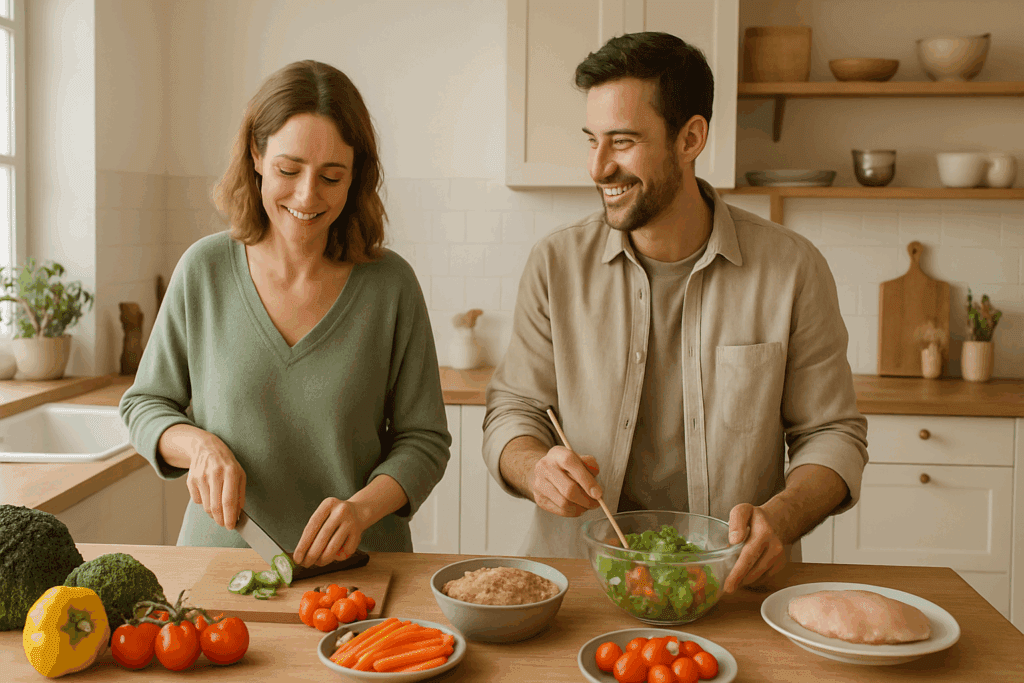
How to Initiate the Conversation with Compassion
One of the hardest but most vital steps in supporting your girlfriend is initiating a conversation about her eating disorder. This conversation must come from a place of love, not confrontation. Timing, tone, and setting are all essential considerations. Choose a quiet, private space where you can speak without interruptions, and focus on expressing concern rather than delivering judgments. For example, saying “I’ve noticed that you seem to be struggling with food lately, and I’m really worried about you” is far more effective than any accusatory or invasive remark.
Use open-ended questions that invite her to share her experience, rather than feeling interrogated. Listening is often more powerful than speaking in these moments. Allow her to talk about her feelings without immediately trying to fix them. A supportive approach communicates that you are a safe person to confide in. This method aligns with what mental health experts identify as trauma-informed care, which avoids re-traumatizing individuals who may already be navigating internal battles. Such conversations, when conducted with empathy and patience, can mark the beginning of a meaningful journey toward recovery.
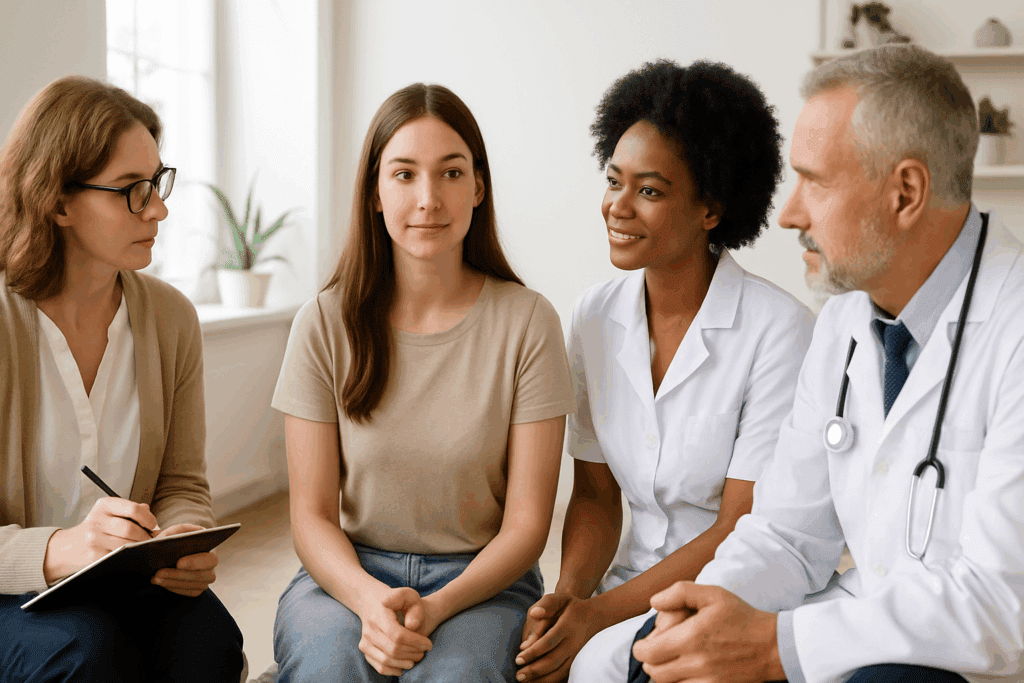
Educating Yourself and Unlearning Harmful Beliefs
The journey of supporting someone through an eating disorder demands self-education. Reading reputable sources, consulting healthcare professionals, and joining support groups are excellent ways to gain a comprehensive understanding. Equally important is unlearning harmful cultural beliefs about food, body image, and worth. Societal ideals often perpetuate unrealistic beauty standards, which can unconsciously influence our expectations and attitudes.
Many people find that their own relationships with food and body image require introspection. By working on your own understanding of these topics, you not only model healthy behavior but also eliminate potential triggers in your shared environment. If you’ve ever searched for terms like “love anorexia recovery,” you may have discovered that many recovery journeys are as much about relearning how to love and nourish oneself as they are about structured treatment. Your role, therefore, extends beyond being a supportive partner—you become a consistent source of positive reinforcement, helping to redefine what health and happiness look like.
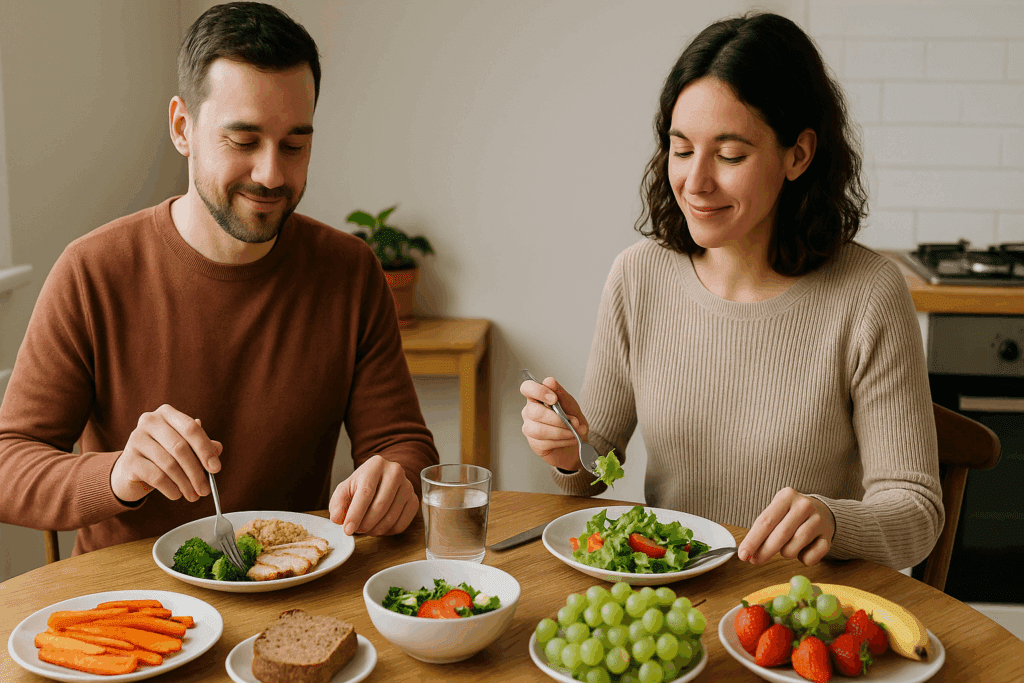
Building a Supportive and Nourishing Environment
Creating an environment that fosters recovery means cultivating both emotional safety and practical strategies for well-being. Start by ensuring that your shared spaces are free of triggering content, such as diet ads or weight-loss materials. Be mindful about the language you use around food, bodies, and exercise. Avoid commenting on weight—whether gains or losses—and instead focus on how your girlfriend feels or functions.
Encouraging routines that support mindful eating is another effective tool. Shared meals, prepared together in a relaxed atmosphere, can reintroduce the joy of eating without pressure. Instead of enforcing strict rules, offer gentle structure. Nutrient-rich, balanced meals should be the norm—not a battlefield. Even casual rituals like drinking tea together or enjoying a slow breakfast can foster stability and emotional connection. Incorporating positive lifestyle tools like journaling, yoga, or nature walks can enhance recovery by reducing stress and promoting emotional regulation.
It’s also essential to recognize that your girlfriend’s relationship with food may remain strained for some time, even with your best intentions. That doesn’t mean you’re failing as a partner. Recovery is nonlinear, and relapses are part of the process for many. Remaining consistent, patient, and nonjudgmental is the most valuable support you can offer.
Collaborating with Healthcare Providers
If your girlfriend is in treatment—or considering it—your respectful involvement can make a meaningful difference. Encourage her to seek support from licensed professionals, including therapists, dietitians, and primary care physicians who specialize in eating disorders. Offer to attend appointments with her if she’s comfortable, or help her navigate the healthcare system, which can often feel overwhelming.
Effective treatment for eating disorders typically includes some combination of cognitive-behavioral therapy (CBT), nutritional counseling, and possibly medication for co-occurring conditions like depression or anxiety. Professionals may also work with you to create a recovery-oriented home environment. This collaborative approach reinforces the concept of “love anorexia recovery” as a shared journey, emphasizing mutual effort rather than isolated struggle.
If your girlfriend is not yet ready to seek treatment, avoid ultimatums or coercion. Instead, provide consistent reassurance that help is available and that you’ll support her whenever she’s ready. This stance maintains her autonomy and respects her process while keeping the door open for future action.
Avoiding Common Pitfalls and Harmful Reactions
Despite good intentions, it’s easy to make missteps when supporting a loved one with an eating disorder. Avoid playing the role of a monitor or enforcer, as this can lead to power struggles and mistrust. Instead, aim to be an ally, not an authority figure. Policing food choices or demanding immediate changes may intensify shame and secrecy, which are already powerful forces in eating disorders.
Another common pitfall is underestimating the seriousness of the disorder or assuming it’s a phase that will pass. Eating disorders have the highest mortality rate of any mental illness, and early intervention can significantly improve outcomes. Take your girlfriend’s experience seriously, and avoid downplaying her emotions or dismissing her behaviors as mere attention-seeking.
Watch for signs of caregiver burnout, especially if you’re also managing other responsibilities like work or school. The emotional toll of constantly worrying about someone you love can be significant. Seeking your own support—through therapy, peer groups, or trusted friends—is not only valid but necessary. Taking care of yourself is not a betrayal; it’s a prerequisite for being able to truly help someone else.
Navigating Nutrition Without Becoming the Food Police
Nutrition plays a central role in recovery, but it’s important to approach this topic with sensitivity and strategy. Rather than focusing on specific calorie counts or rigid meal plans, emphasize the value of nourishment and energy. Share meals that are enjoyable and balanced, incorporating a variety of textures, colors, and flavors to make food feel inviting rather than intimidating.
If your girlfriend is in recovery for anorexia or another restrictive disorder, her body may need gradual reintroduction to certain food groups. Support from a registered dietitian is invaluable in this process. Still, your influence can help make mealtimes less stressful. Use language that highlights how food supports energy, mood, and brain function, rather than appearance.
Avoid the urge to praise or criticize eating behavior. Comments like “I’m so proud of you for finishing your plate” can inadvertently reinforce unhealthy associations with food. Instead, center your conversations on how your girlfriend feels emotionally and physically, creating space for her to reconnect with her body’s internal cues. Recovery from anorexia often involves rebuilding trust in one’s own sensations of hunger and fullness, which can take time.
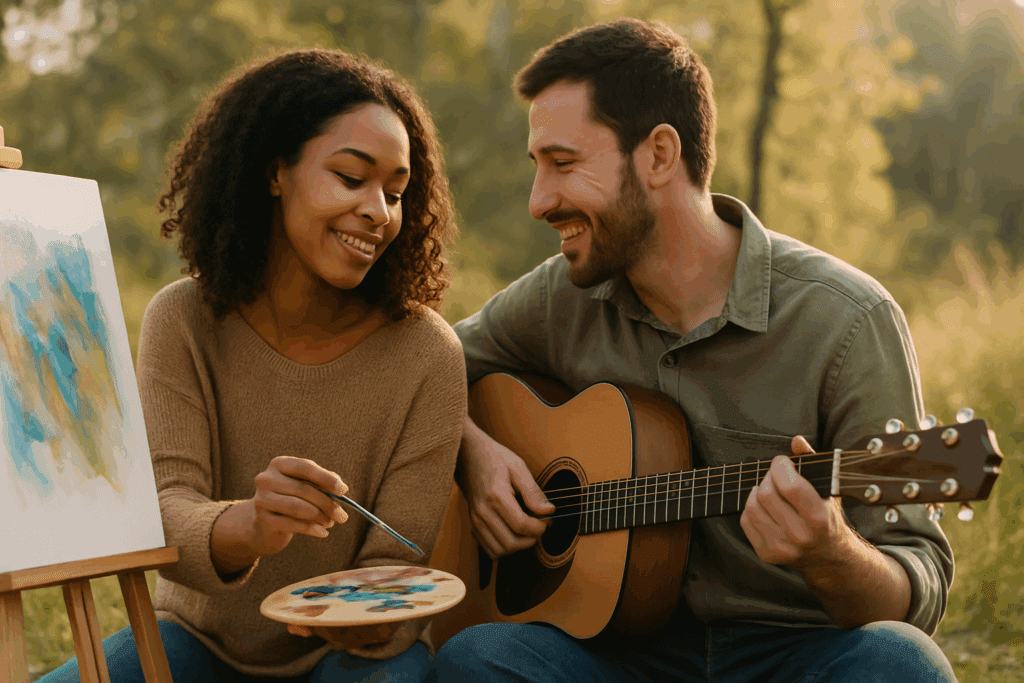
Healing Together: Relationship Dynamics in Recovery
The journey of recovery is deeply personal, but when you’re in a romantic relationship, the effects ripple outward. Navigating this dynamic means being attuned to the unique pressures and vulnerabilities that recovery introduces. Intimacy may change, communication may feel strained, and your usual routines may be disrupted. Acknowledging these changes without resentment fosters emotional safety.
Explore new ways to connect that aren’t centered on food or appearance. Shared hobbies, deep conversations, or creative outlets like art and music can provide avenues for closeness that bypass the eating disorder. Establish boundaries that protect your emotional well-being while remaining engaged in the relationship.
This is also where the concept of the “love anorexic list” reappears, not as a checklist of frustrations, but as a reminder of the many facets of love required during recovery—compassion, patience, understanding, and hope. Love in this context becomes an action verb, defined by the consistent choice to show up even when things are hard.
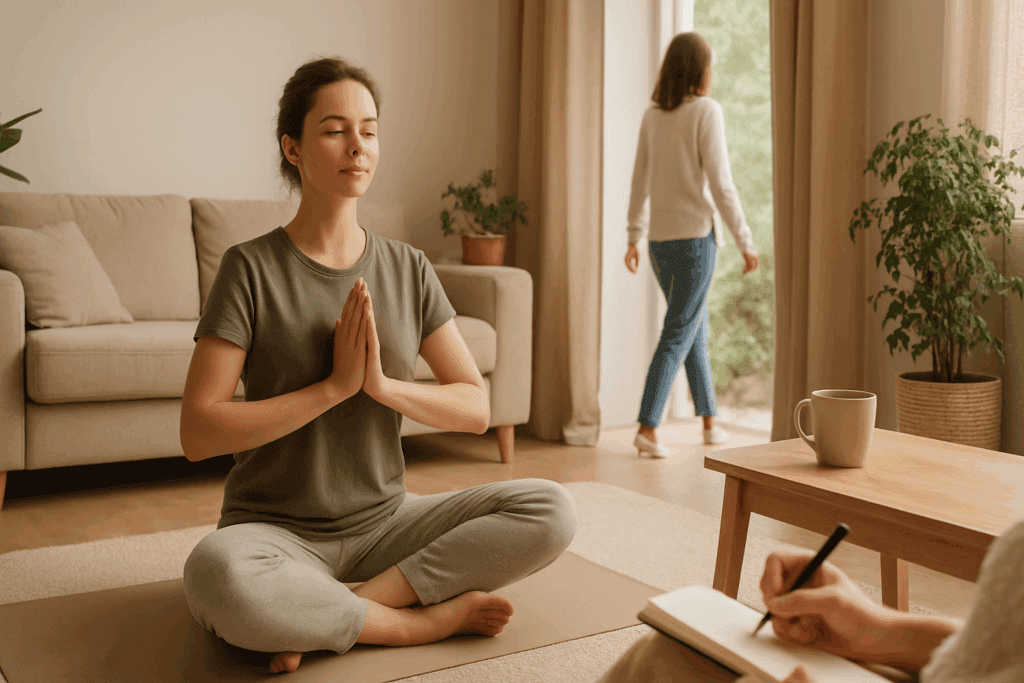
When and How to Encourage Professional Help
At some point, you may reach a crossroads where encouraging professional intervention becomes essential. This moment can be delicate. Frame the conversation as an act of care, not criticism. Explain that you believe her well-being is worth expert support, and that seeking help is a sign of strength, not failure.
Offer to research treatment centers, book appointments, or accompany her to initial consultations. Removing logistical barriers can make the process feel more manageable. Let her know that recovery is not a solo endeavor—that there are whole teams of people trained to help, and that you’re ready to be part of that team in any way she finds helpful.
Sometimes, individuals fear that recovery will mean losing control or being forced into change. Reassure your girlfriend that treatment is collaborative, and that her voice matters every step of the way. Highlight stories of hope and resilience, especially those aligned with the theme of “love anorexia recovery,” to inspire courage during uncertain moments.
Living the Recovery Lifestyle: Consistency, Not Perfection
Supporting your girlfriend through an eating disorder recovery is not about being perfect—it’s about being present. Recovery is a marathon, not a sprint, and your consistent support provides the scaffolding she needs to rebuild her relationship with food, her body, and herself. Incorporate consistent rituals that promote mental health and emotional resilience, like getting regular exercise, ensuring adequate sleep, and limiting stress when possible.
Celebrate progress, however small, and recognize that setbacks do not erase hard-won gains. Continue learning about the evolving science of eating disorders and mental health. Your informed support can serve as both a compass and a safety net. The journey may be long, but it is not without light—and your love can be a powerful force for healing.
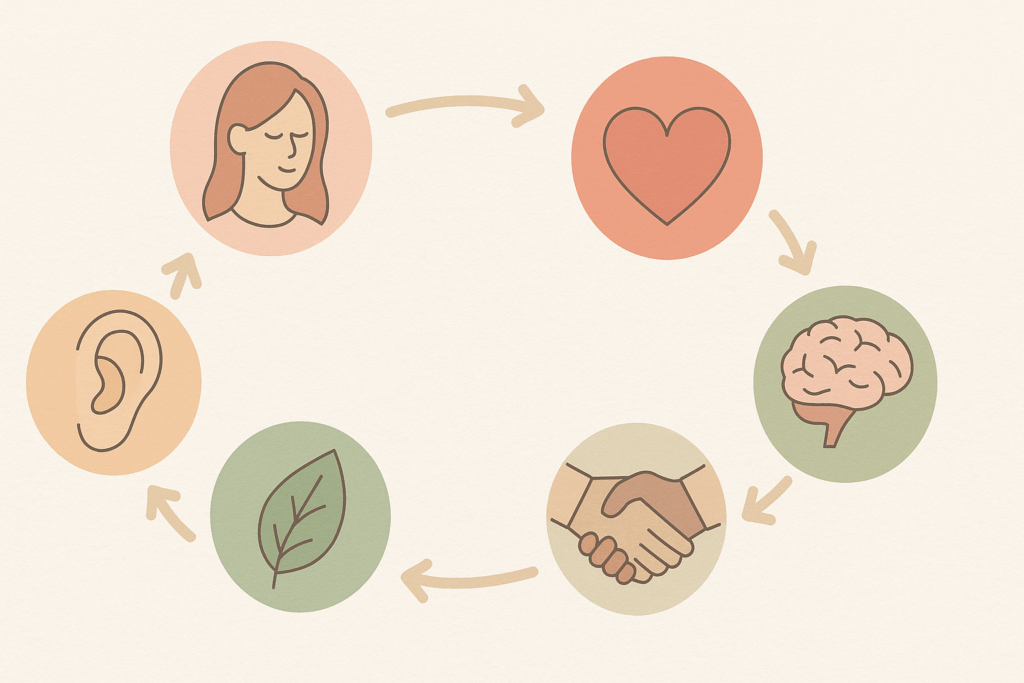
Frequently Asked Questions: Helping a Girlfriend with an Eating Disorder
1. How do I know if my support is helping or making things worse? Support can be a delicate balancing act, especially when navigating the emotional terrain of an eating disorder. One of the most overlooked signs that your help is beneficial is emotional openness—if your girlfriend feels increasingly safe expressing her feelings or struggles, you’re likely making a positive impact. On the other hand, if your efforts trigger defensiveness or withdrawal, it’s time to reassess your approach. While researching what can I do to help girlfriend with eating disorder, remember that subtle cues often provide the clearest answers. Encouraging her autonomy, asking for feedback on how you can support her better, and showing willingness to adjust your role can go a long way in fostering trust and avoiding unintended harm.
2. Can relationship dynamics impact the recovery process? Absolutely. Romantic relationships often act as mirrors, reflecting a person’s deepest insecurities and needs. The emotional intimacy you share can either support or hinder recovery depending on how that connection is nurtured. While exploring the love anorexic list, many couples find that unresolved conflicts or communication gaps amplify the challenges of recovery. However, relationships rooted in empathy, consistent communication, and mutual respect can become powerful catalysts for healing. Being aware of your own triggers and tendencies ensures that you are not unknowingly replicating harmful dynamics.
3. Is it appropriate to set boundaries during her recovery? Yes, and it’s crucial. One common misconception found in many discussions about love anorexia recovery is the idea that unconditional support means sacrificing your own mental and emotional health. Boundaries are a vital aspect of healthy relationships, especially when mental health challenges are present. For example, it’s reasonable to communicate when certain conversations feel overwhelming or when you need space to recharge. Setting respectful limits is not about detachment—it’s about sustaining your ability to be a steady presence over time.
4. What role do cultural and social influences play in her eating disorder? Cultural ideals around thinness, body image, and perfection can contribute significantly to the development and maintenance of eating disorders. Social media, peer pressure, and even well-meaning family members may reinforce harmful norms. While exploring what can I do to help girlfriend with eating disorder, it’s wise to become an advocate for healthier, more inclusive narratives. Actively challenging appearance-based compliments or questioning diet culture rhetoric can have a profound impact on her internal belief systems. Additionally, fostering spaces where diverse body types are celebrated helps dismantle external pressures that may hinder recovery.
5. Should I avoid talking about food altogether? Not necessarily. Silence around food can be just as harmful as hyper-fixation on it. Rather than avoiding the topic, shift the conversation to center around nourishment, enjoyment, and cultural experiences associated with eating. When examining strategies under love anorexia recovery, many experts encourage reframing food as an ally rather than an enemy. For example, planning meals based on mutual enjoyment rather than nutritional quotas can reduce tension. The key lies in neutral, non-judgmental language and prioritizing shared experiences over scrutiny.
6. What if my girlfriend denies that there’s a problem? Denial is a common defense mechanism, especially in the early stages of disordered eating. This doesn’t mean your observations are invalid or that your concern is misplaced. Instead of confronting her with evidence or trying to “prove” she’s unwell, focus on expressing your emotions and fears in a way that invites dialogue. Phrases like “I’ve been really scared for you lately” can open doors more effectively than accusations. In many cases, those researching what can I do to help girlfriend with eating disorder find that a non-judgmental, persistent show of care is what eventually encourages acknowledgment and action.
7. How can I help her navigate relapse without feeling like we’ve failed? Relapse is not uncommon and should not be framed as failure. Recovery is rarely a straight path, and setbacks can offer important insights into unresolved issues or unaddressed triggers. When the love anorexic list is revisited during relapse periods, many partners notice increased emotional withdrawal or self-isolation. This is when your consistency and patience are most needed. Celebrate the courage it takes to return to recovery after a relapse, and reaffirm your role as someone who sees her whole self—not just her illness.
8. Are there support groups specifically for partners of people with eating disorders? Yes, and they can be incredibly helpful. Many mental health organizations and treatment centers offer group therapy or online forums tailored for partners. These resources often expand on strategies discussed in love anorexia recovery journeys, offering real-life stories and practical advice from those who’ve been in similar roles. Such groups provide emotional validation and help you develop communication strategies, coping mechanisms, and realistic expectations. Connecting with others on the same path can reduce feelings of isolation and burnout.
9. Can eating disorder recovery strengthen our relationship? Surprisingly, yes. While the experience can be emotionally taxing, couples who face such adversity together often develop a deeper level of connection. Working through the complexities of what can I do to help girlfriend with eating disorder teaches patience, active listening, and emotional resilience—skills that benefit any long-term relationship. When recovery becomes a shared journey rather than an individual burden, both partners tend to grow. This doesn’t mean you should romanticize the struggle, but rather recognize the potential for increased empathy and emotional depth.
10. What should I do if I feel overwhelmed by her recovery process? Feeling overwhelmed is completely natural and does not make you less supportive. Caregiver fatigue is a real and valid experience, especially in relationships marked by chronic stress or mental health concerns. Referencing the emotional load described in the love anorexic list can help you identify warning signs of burnout, such as irritability, emotional numbness, or resentment. Seeking your own therapist or counselor allows you to process these emotions in a healthy way. Remember, prioritizing your well-being doesn’t diminish your commitment—it enhances your capacity to support her long term.
Reflecting on Hope, Healing, and the Role of Love in Eating Disorder Recovery
In navigating the complexities of what can I do to help my girlfriend with an eating disorder, you’ve likely discovered that the journey is as much about inner growth as it is about outward action. Offering support requires patience, education, and above all, love that is both informed and unwavering. From recognizing the profound weight of disorders like anorexia to understanding how your daily words and behaviors shape a healing environment, every step you take matters. Love is not a cure, but it is a critical component in the recovery process. Your commitment to walking alongside your partner—through the valleys as well as the peaks—embodies the essence of love anorexia recovery.
As you support your girlfriend in this chapter of life, you also contribute to dismantling stigma, advocating for mental health literacy, and promoting a more compassionate approach to healing. This doesn’t come from grand gestures alone, but from the quiet, daily choices to listen, learn, and show up. Whether you’re discovering how to integrate mindful meals, collaborating with healthcare providers, or simply sitting in silence when there are no words—your presence speaks volumes.
The path forward may not be easy, but it is paved with possibility. Together, you can build a life where food is not feared, where bodies are honored, and where love becomes a living, breathing tool for transformation. In this space, healing isn’t just possible—it’s profoundly human.
Was this article helpful? Don’t let it stop with you. Share it right now with someone who needs to see it—whether it’s a friend, a colleague, or your whole network. And if staying ahead on this topic matters to you, subscribe to this publication for the most up-to-date information. You’ll get the latest insights delivered straight to you—no searching, no missing out.

